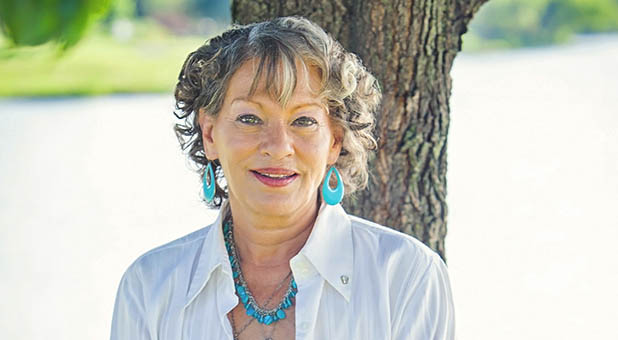Court Rules Retired Nurse’s Religious Liberty Was Violated
In the case of retired nurse Mary Anne Sause, who was told she could not pray in her own home and was ridiculed for her faith because of a simple noise complaint received bittersweet news from a three-judge panel of the 10th Circuit Court of Appeals on Thursday.
Although the judges found her First Amendment-protected religious liberty was violated, they also found the police had what is known as “qualified immunity” and could not be held accountable for their actions. Both of the judges who voted to uphold the lower court’s decision to dismiss her case said they were troubled by the actions of the officers of the Louisburg, Kansas, Police Department.
“[W]e assume that the defendants violated Sause’s rights under the First Amendment when, according to Sause, they repeatedly mocked her, ordered her to stop praying so they could harass her, threatened her with arrest and public humiliation, insisted that she show them the scars from her double mastectomy, and then “appeared . . . disgust[ed]” when she complied—”all over” a mere noise complaint,” Circuit Judge Nancy Moritz wrote in her majority opinion.
“Ms. Sause’s allegations fit more neatly in the Fourth Amendment context,” Chief Judge Timothy Tymkovich wrote in his concurring opinion. “And, I must add, either the officers here acted with extraordinary contempt of a law-abiding citizen and they should be condemned, or, if Ms. Sause’s allegations are untrue, she has done the officers a grave injustice by manufacturing such reprehensible conduct.
“It is axiomatic that an initially justified police encounter may nonetheless evolve into an unconstitutional seizure if, for example, the encounter is prolonged beyond the time reasonably required to complete the legitimate police objective justifying the encounter, or if the officers’ actions are not reasonably related in scope to that legitimate objective. If we believe Ms. Sause’s allegations, this sort of devolution is what happened here …
“According to the complaint, the officers were more preoccupied with harassing Ms. Sause than with conducting a legitimate police investigation … If true, Ms. Sause’s allegations are inconsistent with any legitimate law enforcement purpose capable of justifying a continuing police intrusion in her home.”
The charges of disturbing the peace and interfering with police were later dismissed, prompting Sause’s lawsuit against the officers.
Moritz’ opinion states that First Amendment law isn’t clearly defined to the specific situation Sause found herself in, particularly because she could not prove that all police would reasonably know that the First Amendment protected her right to pray in her home without interference. It also found that qualified immunity prevented her from seeking monetary damages, and she lacked standing to amend her lawsuit to seek an injunction against the police.
The case was remanded back to the district court with instructions to dismiss without prejudice, meaning she could bring a claim against police on the basis of Fourth Amendment violations as Tymkovich wrote in his concurring opinion. Click here to read the entire opinion.
“Although the decision to uphold the lower court’s dismissal is disappointing, the harsh criticism of the officers’ conduct in this case supports our First Amendment claim,” Jeremy Dys, Deputy General Counsel for First Liberty Institute stated. “No one should face the prospect of being arrested for praying in their own home.” {eoa}
















































